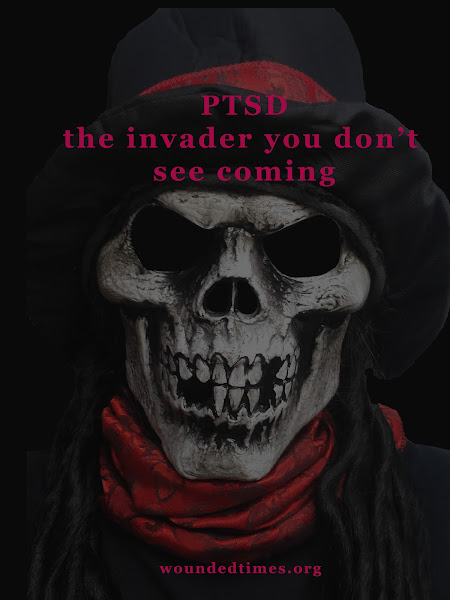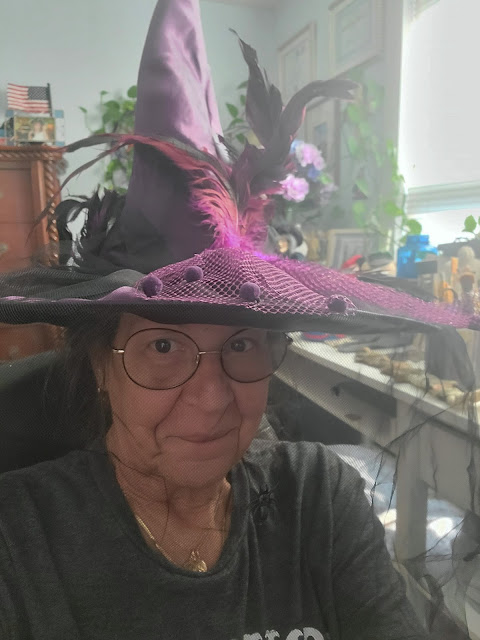Wounded Times
Kathie Costos
September 22, 2023
After you survive "it" all too often you wonder if God did it to you or did He saved you. It's hard to make sense out of coming out of "it" alive. It's even harder when others do not.
I know I wondered after the over ten times in my life. Everyone I've helped over the last 40 years wondered. After probably thousands of news articles, none of the people in them were sure what the answer was right away. The other thing most of us have in common is that when we realize that God didn't do it to us, we're a lot happier and our healing is greater than anything we ever expected.
This isn't about "religion" but about our spiritual life. The beliefs we hold and, well, all too often keep private. Our spiritual life is the one that matters. I no longer attend church. I have never given up, nor will I ever want to spend a day without that part of me actively communicating with God. You may use the term "Higher Power" to define your connection. The bottom line is that none of that really matters. The thing that does matter is you are not here alone wondering if you did something wrong and the suffering coming after trauma was a punishment for something you did in a past life. Ok, honestly, I've used that before to explain to someone why I felt I was suffering, but it was more of a joke than reality.
When I was training as a Chaplain, we were reminded of stupid things people said when they didn't know what to say to someone suffering. The biggest stupidest thing was, "God only gives us what we can handle," and then they expect that to encourage someone to ask God for help. Oh, sure as if telling someone God did it to them would cause them to ask for anything from Him. Anyway, the proper thing to say because it is true is, that God is there to help you heal from it.
People do the crappy stuff and God has nothing to do with the evil things they do. If you know anything about all the things in the Bible you don't hear in church, it is packed full of people using their free will to do bad things. The awesome thing is, it is even more packed with people doing good because they can, someone did it for them and they want to pass it on. It feeds your spirit to help someone else and expect nothing in return other than the priceless feeling you walk away with.
Now, take that feeling and imagine how God feels when He helps us. After all, He created us and knows us better than anyone else. As for me, I take great comfort in knowing that no matter how much I can screw things up, how much I can get wrong, He hasn't given up on me and still loves me.
I'm not alone on this as you'll see from the National Center for PTSD. One of the things I had to do was to find out where people were spiritually before I could help them. Over 90% said they believed in God and most believed Jesus was and is the Son Of God but less than 20% of them said they attended church or any house of worship. That says a lot right there.
You can be religious and spiritual but spirituality does not separate us from others. It connects us to one another and we are able to heal with their help. Others are able to heal with ours and, we heal even more. That is the greatest blessing of all. There is nothing more powerful than that.
Spirituality and Trauma: Professionals Working Together
PTSD: National Center for PTSD
What Is Spirituality?
Spirituality is a personal experience with many definitions. Spirituality might be defined as "an inner belief system providing an individual with meaning and purpose in life, a sense of the sacredness of life, and a vision for the betterment of the world." Other definitions emphasize "a connection to that which transcends the self." The connection might be to God, a higher power, a universal energy, the sacred, or to nature. Researchers in the field of spirituality have suggested three useful dimensions for thinking about one's spirituality:
Beliefs
Spiritual practices
Spiritual experiences
Currently, in the US, opinion surveys consistently find that most people endorse a belief in God or a higher power. In a 2007 Gallup Poll, 86% of respondents indicated a belief in God, while only 6% stated they did not believe in God (4). Many of these individuals would describe religion or spirituality as the most important source of strength and direction for their lives. Because spirituality plays such a significant and central role in the lives of many people, it is likely to be affected by trauma, and in turn affect the survivor's reaction to the trauma.
Research suggests that for many trauma survivors, spirituality may be a resource that can be associated with resilience and recovery. However, for some, the circumstances of the trauma may lead to the questioning of important and previously sustaining beliefs. This can lead to spiritual struggle or even loss of faith. It is important for helping professionals to be comfortable asking about how spirituality has been affected by trauma, and to what role spirituality is playing within the recovery process following trauma.
Assess spiritual beliefs and needs
Depending on their beliefs, trauma survivors may benefit from adding a spiritual dimension to their recovery. A brief assessment of the impact of trauma on spirituality and the role spirituality might play in recovery has been suggested for use following disasters (16). These questions are likely a useful starting place for survivors of other types of trauma as well.
Are you affiliated with a religious or spiritual community?
Do you see yourself as a religious or spiritual person? If so, in what way?
Has the event affected your religiousness and if so, in what ways?
Has your religion or spirituality been involved in the way you have coped with this event? If so, in what way?
Providers interested in assessing these issues more systematically can use a brief questionnaire measure of multiple domains of religion and spirituality that was created by the NIH (6). learn more here






